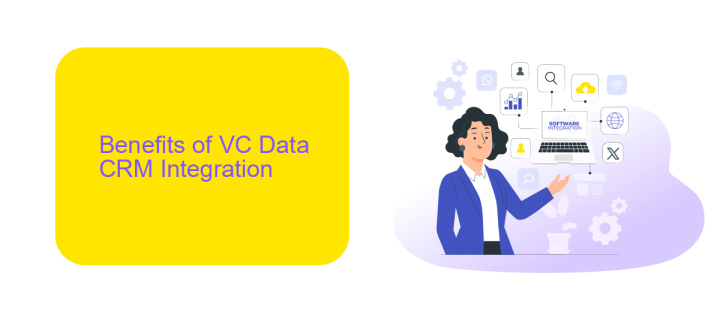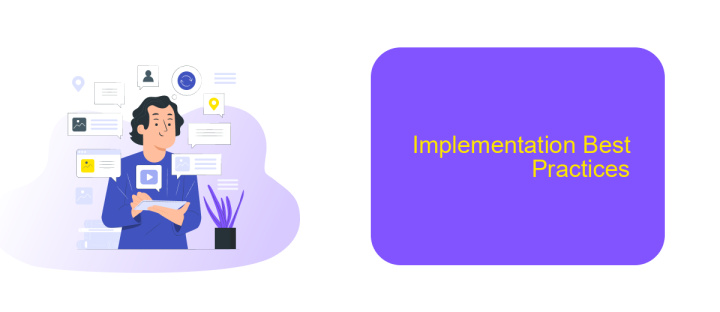VC Data CRM Integration
In today's fast-paced business environment, seamless integration between venture capital (VC) data and customer relationship management (CRM) systems is crucial. This integration not only streamlines operations but also enhances data accuracy and decision-making. By leveraging advanced VC data CRM integration, firms can gain a competitive edge, improve investor relations, and drive growth through more informed and strategic investments.
Introduction
Integrating VC data with CRM systems has become crucial for businesses looking to streamline operations and enhance customer relations. This process involves synchronizing venture capital data with customer relationship management platforms, enabling firms to manage and analyze their interactions with investors more effectively.
- Improved data accuracy and consistency
- Enhanced decision-making capabilities
- Automated workflows and reduced manual effort
- Comprehensive investor insights
One efficient way to achieve this integration is by using services like ApiX-Drive, which facilitate seamless data transfer between various platforms. ApiX-Drive offers a user-friendly interface and robust automation tools, ensuring that your VC data is consistently updated and readily available within your CRM system. By leveraging such services, businesses can focus more on strategic initiatives rather than getting bogged down by technical complexities.
Benefits of VC Data CRM Integration

Integrating VC data with your CRM system offers numerous benefits, significantly enhancing your business operations. One of the primary advantages is the streamlined data flow, which ensures that all relevant information is readily available in a centralized location. This integration eliminates the need for manual data entry, reducing errors and saving valuable time. As a result, your team can focus on more strategic tasks, such as analyzing data trends and making informed decisions based on accurate and up-to-date information.
Moreover, VC data CRM integration facilitates better customer relationship management by providing a 360-degree view of customer interactions and investment activities. This holistic perspective enables more personalized communication and tailored services, ultimately leading to improved customer satisfaction and retention. Tools like ApiX-Drive can simplify the integration process, allowing you to connect various data sources effortlessly. By leveraging such services, you can ensure a seamless and efficient integration, maximizing the potential of your CRM system and driving business growth.
Challenges and Considerations

Integrating VC data with a CRM system presents several challenges and considerations that businesses must address to ensure a seamless and effective implementation.
- Data Compatibility: Ensuring that the data formats between the VC platform and the CRM system are compatible can be complex. Inconsistent data structures may require extensive mapping and transformation.
- Security Concerns: Transferring sensitive data between systems necessitates robust security measures. Encryption and secure APIs are essential to protect data integrity and privacy.
- Real-Time Synchronization: Achieving real-time data updates can be challenging. Delays in data synchronization might lead to outdated information, affecting decision-making processes.
- Integration Tools: Choosing the right integration tool, such as ApiX-Drive, can simplify the process. ApiX-Drive offers a user-friendly interface and supports various platforms, ensuring smooth data transfer and synchronization.
- Cost and Resources: The integration process can be resource-intensive, requiring both time and financial investment. Proper planning and budgeting are crucial to manage these aspects effectively.
Addressing these challenges requires careful planning, the right tools, and ongoing monitoring to ensure that the integration meets business objectives and enhances operational efficiency.
Implementation Best Practices

Integrating VC data with a CRM system can significantly enhance your business operations by providing a unified view of customer interactions and investment data. To ensure a smooth and effective integration, it's essential to follow best practices that can help you avoid common pitfalls and maximize the benefits.
First, clearly define your integration goals and identify the key data points that need to be synchronized between your VC data sources and CRM system. This will help you create a roadmap for the integration process and ensure that all stakeholders are on the same page.
- Choose a reliable integration tool like ApiX-Drive to automate data transfer and reduce manual effort.
- Ensure data consistency by establishing data validation rules and regular audits.
- Maintain data security by implementing encryption and access controls.
- Test the integration thoroughly before going live to identify and fix any issues.
Finally, provide adequate training to your team on using the integrated system and continuously monitor the integration performance. By following these best practices, you can ensure a seamless and efficient VC data CRM integration that drives better decision-making and business outcomes.
Conclusion
The integration of VC Data with CRM systems is a transformative step for businesses looking to enhance their data management and customer relationship strategies. By seamlessly connecting these two critical platforms, companies can achieve a more holistic view of their customer interactions, streamline their workflows, and make data-driven decisions that drive growth and efficiency.
Utilizing services like ApiX-Drive can significantly simplify the integration process, ensuring that data flows effortlessly between VC Data and CRM systems. ApiX-Drive offers a user-friendly interface and robust functionality, making it easier for businesses to set up and manage their integrations without the need for extensive technical expertise. As a result, organizations can focus on leveraging their integrated data to improve customer engagement, optimize operations, and ultimately achieve their business objectives.
FAQ
What is VC Data CRM Integration?
Why is VC Data CRM Integration important?
What are the key benefits of VC Data CRM Integration?
How can I set up VC Data CRM Integration?
What challenges might I face with VC Data CRM Integration?
Routine tasks take a lot of time from employees? Do they burn out, do not have enough working day for the main duties and important things? Do you understand that the only way out of this situation in modern realities is automation? Try Apix-Drive for free and make sure that the online connector in 5 minutes of setting up integration will remove a significant part of the routine from your life and free up time for you and your employees.

